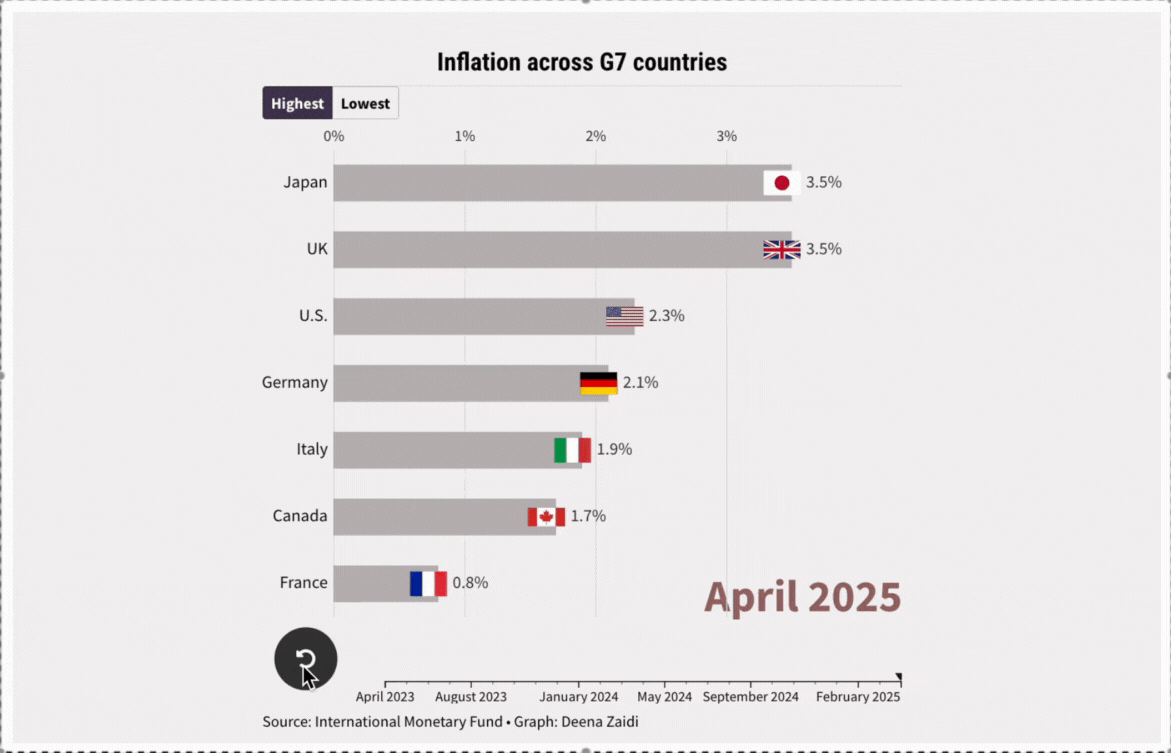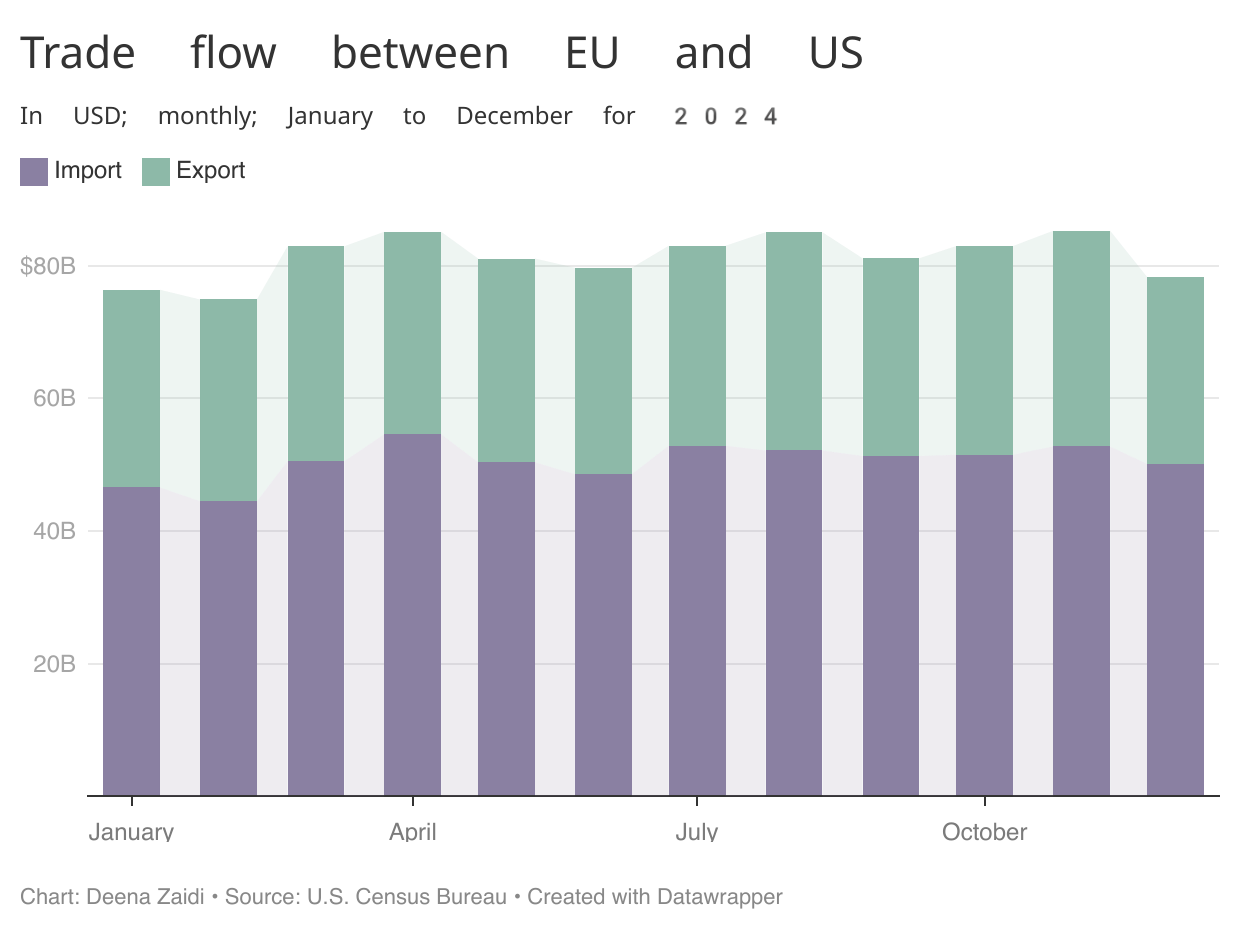The ECB cut its key rates by 25 bps effective June 11 after lowering its 2025 inflation forecast to 2%, with core inflation near target and modest GDP growth expected, but also cautioned against rising tariff uncertainty.

Data and Financial Journalist

The ECB cut its key rates by 25 bps effective June 11 after lowering its 2025 inflation forecast to 2%, with core inflation near target and modest GDP growth expected, but also cautioned against rising tariff uncertainty.

In Japan, the only Asian economy in G7, core inflation rose at its fastest annual pace in over two years, climbing to 3.5% in April, according to data released Friday. I mapped the inflation (with some caveats) to look at the overall inflation trend in G7 economies.

The U.S. reported major trade deficits in February 2025 with China, the EU, and Mexico—just as President Trump’s latest round of ‘reciprocal’ tariffs took effect. Here’s a breakdown of who’s facing the steepest penalties, and why some key allies like Canada and Mexico are exempt.

The European Union (EU), America’s third-largest trading partner, retaliates after Trump unveils a 25% tariff on EU imports, a move that could drive inflation and escalate global trade tensions.